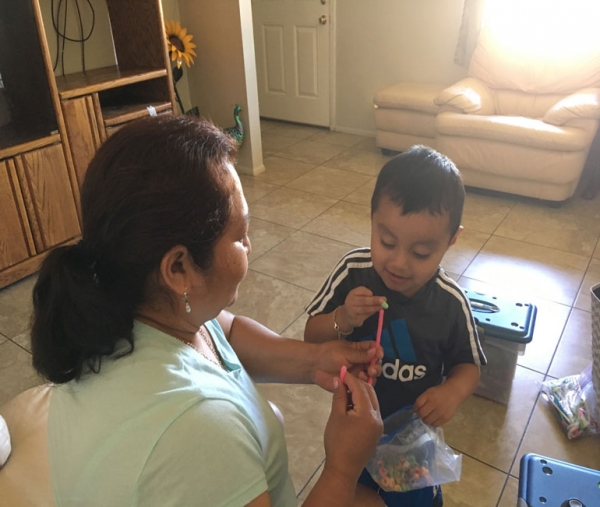Araceli Urgua has progressed so much, and it has been a pleasure as a parent educator to be a witness to her success.
It all started four years ago with one of her daughters, who graduated from the Parents as Teachers (PAT) program. She is now 7 years old and has extraordinary academic achievements. Lately, Araceli had some concerns — not about her daughter but her 3-year-old son, Victor. Victor was having difficulty with his communication and behavior. Araceli remembered our PAT program that was so helpful for her daughter, and she contacted our agency to request assistance.
I still remember the first visit with Araceli and Victor. I introduced myself as their new parent educator (PE) and reviewed our program’s purpose, and specifically, the importance of interaction between the parent and child. As her PE, I motivated Araceli to follow guidelines for discipline, good nutrition, safety and health to form a healthy, nurturing environment for her son. Above all, I was excited to move forward and work together to create a plan to support her family’s needs.
Araceli and I started with two goals: one was to work together to help Victor achieve school readiness, and our second goal was to reach an agreement to learn and practice three positive disciplinary techniques.
Once we began the screenings, the results showed some concerns about his communication, fine motor, intellectual/problem solving skills and vision. Araceli asked us to teach her some activities to help. The parents will provide Victor with plenty of opportunities to practice them.
As for the concern about Victor’s vision, we referred her to a physician. The ophthalmologist concluded that Victor needed glasses and he was taken to have his corrective lenses made. A couple weeks later, Victor received his prescribed glasses and Araceli was thrilled with the difference.
What helped Araceli and Victor on their path to success was Araceli’s willingness to learn and her persistence to keep trying. Over the months, she learned how to properly react to Victor’s tantrums, to be consistent with setting limits, and to be direct with Victor in order to increase opportunities for active play instead of electronic games. I showed her how to keep a behavior chart for Victor, and how nutrition and behavior were positively impacted by reducing sugar and caffeine.
Through the visits, Victor showed improvements. He became more verbal, and his outbursts of anger have become almost nonexistent.
Today, Victor has been rescreened, and he has passed all his developmental screenings with no concerns. His parents are happy with Victor’s improvements. They are willing to continue supporting him with his school readiness and they look forward to continued support from our program for the whole family until Victor graduates from the program.






